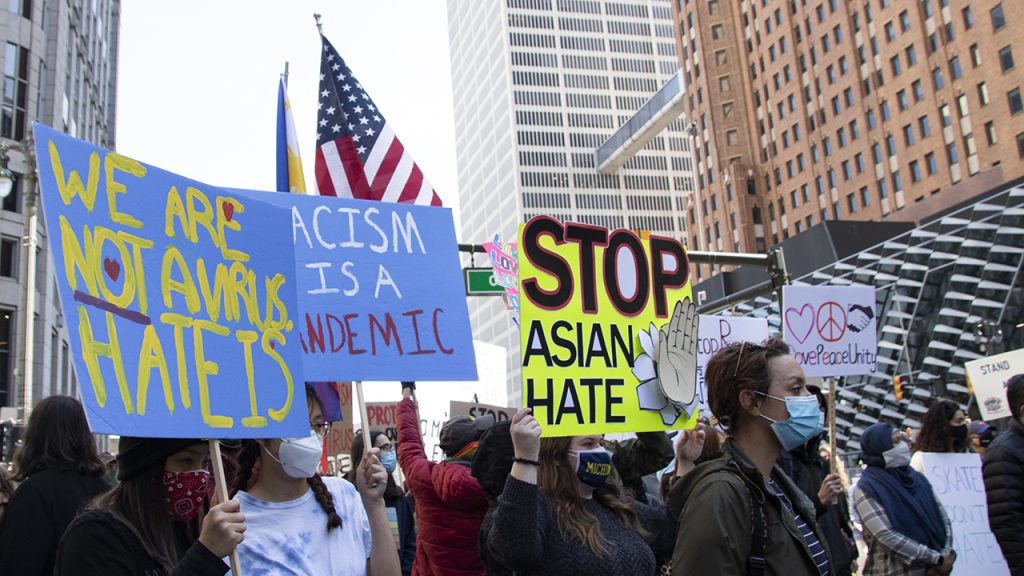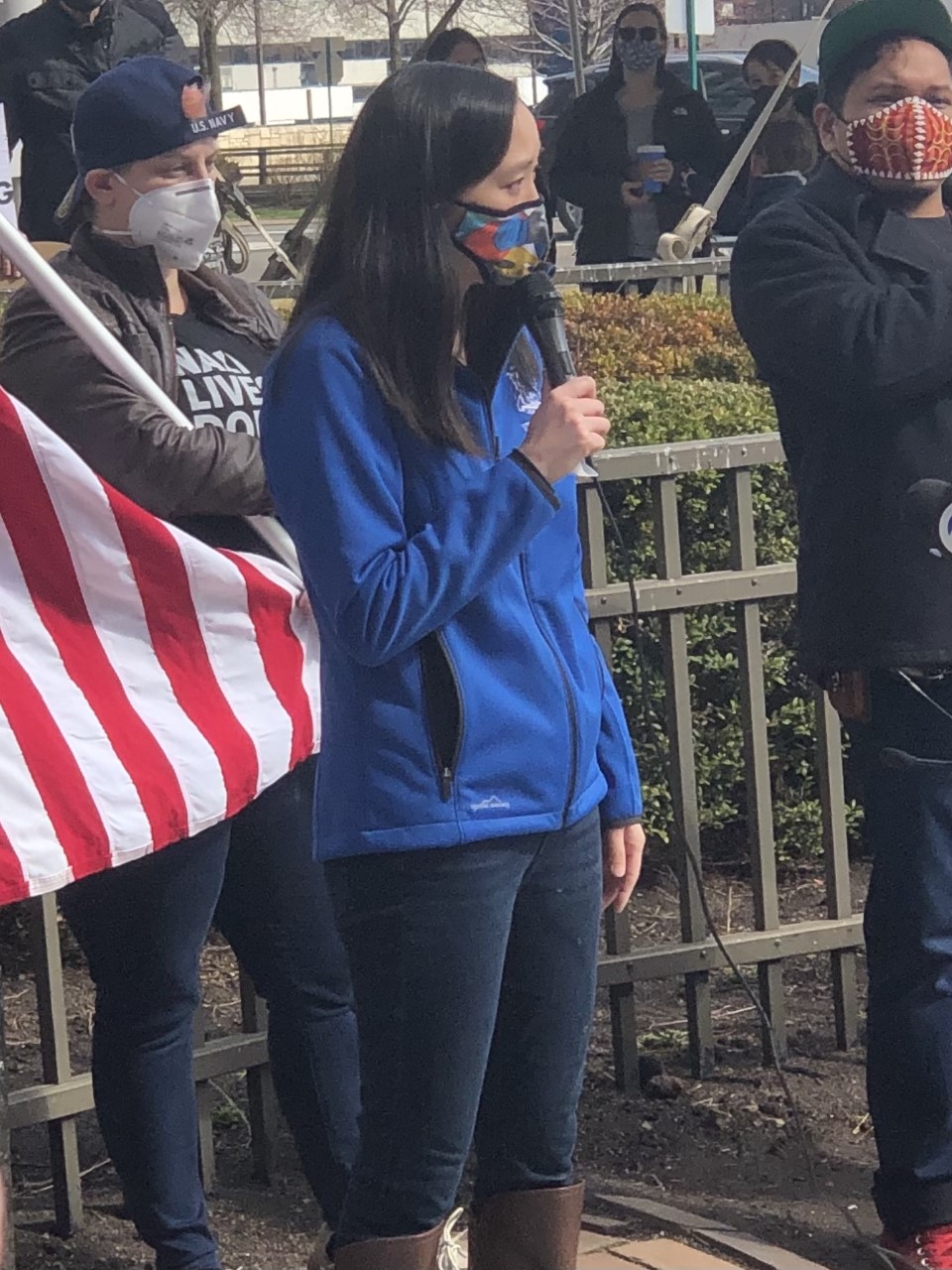Anti-Asian Racism Is Nothing New, Sen. Stephanie Chang Says, But Now There’s a ‘Renewed Sense of Urgency’ To Take Action
While the solidarity in response to the Atlanta shootings has been inspiring, Chang acknowledges there also needs to be space for reflection and recovery.

"Stop Asian Hate" march down Woodward, March 2021.
Over the last year, America has seen a significant rise in anti-Asian hate and discrimination, including recent high-profile incidences of horrific violence. Public awareness on the issue has peaked since the Atlanta-area mass shooting on March 16 that killed eight people, including six women of Asian descent, sparking outrage and dismay.
Experts have pointed to a year’s long escalation in troubling rhetoric directed at the Asian community as an explanation for the dramatic increase in racism and violence. This type of bigotry, while heightened, is far from a new phenomenon for the AAPI community. America has a long history of discrimination against Asian communities that has long gone unaddressed.
Listen: State Sen. Stephanie Chang on the rise of anti-Asian hate.
Guest

State Sen. Stephanie Chang (D-Detroit) represents Michigan’s 1st state Senate district and is the first Asian American woman to be elected to the Michigan Legislature.
She says that the violence exhibited in Atlanta is indicative of a pattern of racism against the AAPI community in America. “Unfortunately, it took a mass shooting for most of America to realize what was going on,” says Chang. She adds that the tragedy shook many into action. “I do think there has been a renewed sense of urgency even within the Asian American community and with our allies,” says Chang.
The events of the last several weeks have spurred a mix of emotions for Chang, vacillating between sadness, anger and hopefulness. “For me and others, it’s been a roller coaster of feeling so angry as we learned more details of what happened in Georgia, and then feeling really sad,” says Chang. While the solidarity in response to the shooting has been inspiring, Chang acknowledges there also needs to be space for reflection and recovery. “I do recognize that there is a lot of healing that needs to happen as well,” says Chang.
For those interested in supporting the AAPI community, Chang urges people to take bystander intervention classes through Asian Americans Advancing Justice. She also encourages the public to read books that provide important context on the Asian American experience, like Helen Zia’s “Asian American Dreams.”
Trusted, accurate, up-to-date
WDET is here to keep you informed on essential information, news and resources related to COVID-19.
This is a stressful, insecure time for many. So it’s more important than ever for you, our listeners and readers, who are able to donate to keep supporting WDET’s mission. Please make a gift today.
